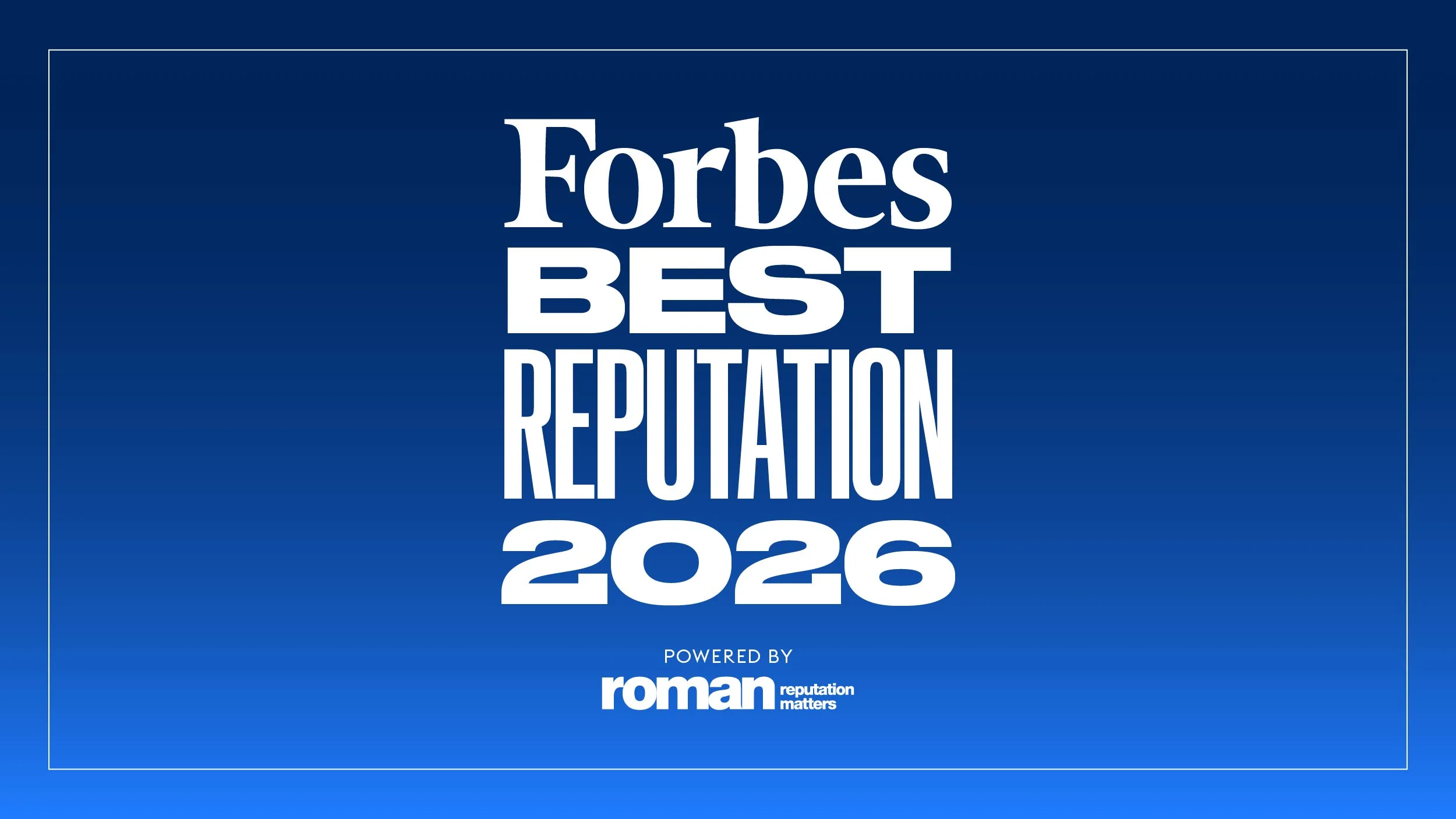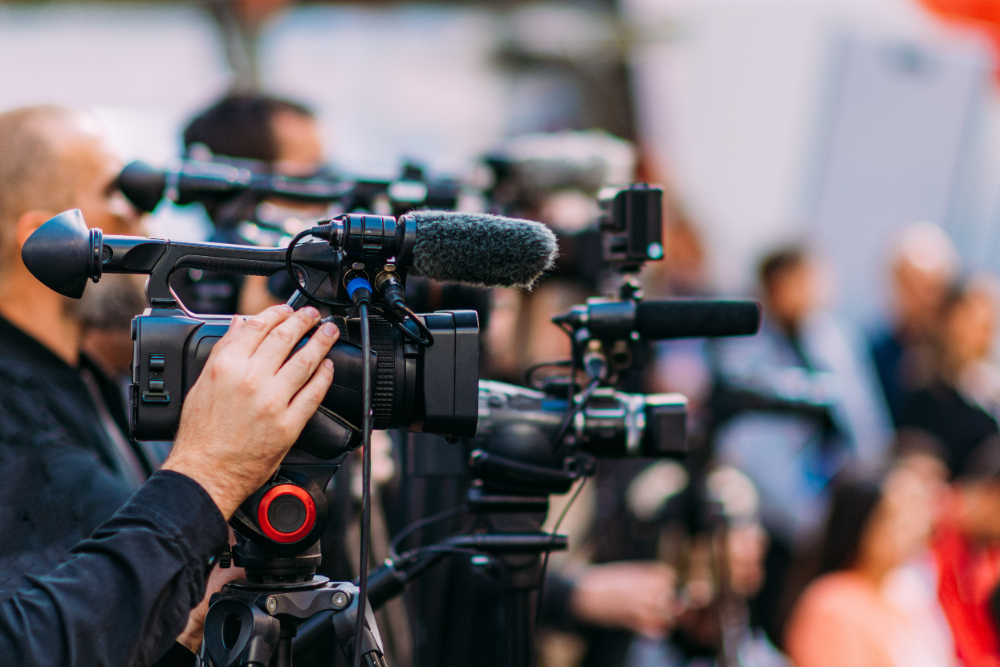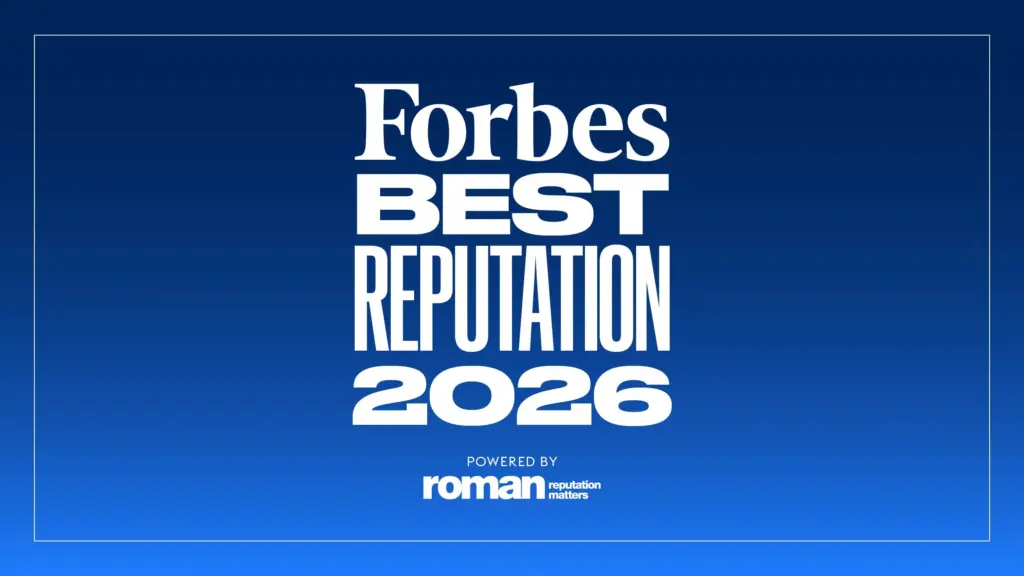Measuring the influence in the media is not the same as counting how many times a brand is mentioned in the press or on social media. Nowadays, the real impact of a brand, company or personality depends not only on the volume of coverage, but also on the quality of published contentthe meaning of the messageand how this affects the reputation with your key audiences. Throughout this guide, you'll discover why it's essential to measure that influence, what tools you can use, and how from ENIGMIA We take this measurement to another level with artificial intelligence models that transform data into strategic decisions.
What does it mean to measure media influence and why is it vital today?
Media influence represents the degree to which the messages broadcast in the media manage to shape public perception, trigger decisions or consolidate the image of a brand. It is not just a matter of appearing, but of how you appear, in what context, and with what result.
Today, companies that are able to measure their reputational impact not only react to the public conversation, but also anticipate it. From product launches to reputational crises, knowing how what is said about you affects your company allows you to act in time and align your communication strategy with your business objectives.
Measuring influence is not exclusive to large corporations. Startups, NGOs, public institutions and even personal figures can benefit from understanding how news, blog mentions, interviews or even spontaneous posts on social networks affect them.
Key differences between visibility, coverage and true influence
One of the most common mistakes is to confuse visibility with influence. Although they are related, they are not the same.
- Visibilitynumber of times a brand appears in the media, regardless of tone or context.
- CoverageThe following are some of the key factors to consider: number of media outlets, types of platforms (press, TV, blogs, podcasts, etc.) and level of reach.
- InfluenceThe real capacity of these mentions to affect the reputation, public opinion and decisions of stakeholders.
Not all mentions are worth the same. One review in a relevant media can have more impact than a hundred positive mentions on non-authoritative sites. This is where more advanced metrics come in, such as:
- Coverage shade (positive, neutral, negative)
- Thematic context (where is the brand being mentioned?)
- Engagement generated (shares, reactions, comments)
- Presence vis-à-vis competitors (who is leading the conversation?)
This more qualitative approach is key to moving from simple monitoring to reputational intelligence.
Criteria for choosing effective media measurement tools
Not all tools offer the same analysis capabilities. When selecting a solution for monitor media professionally, it is key to consider the following criteria:
- Comprehensive coverageDo you analyze both traditional media (press, TV, radio) and digital media (social networks, blogs, newsletters)?
- Evaluation of sentimentCan you identify whether the coverage is positive, negative or neutral?
- Contextual analysisAnalyze what is being talked about when your brand is mentioned?
- Comparative capacityCan you see how you are positioned in relation to your competitors?
- Access to historical dataDoes it allow you to analyze time evolution, detect trends and patterns?
- Real-time alertsDoes it alert you instantly if there is a media crisis or a peak in mentions?
- Report customizationCan you adapt the results to the KPIs of your communication or reputation strategy?
A useful tool not only collects data, but also converts it into decisions. This is where a solution such as ENIGMIAdesigned to extract the true impact of each media appearance from an AI-based reputational perspective.
► You may be interested in: How to measure your company's online reputation
Comparison of media monitoring tools
Selecting the right tool for measuring media influence can make the difference between having loose data and having actionable reputational intelligence. Below, we take a look at some of the platforms most commonly used by communications, marketing and reputation management professionals.
Mention
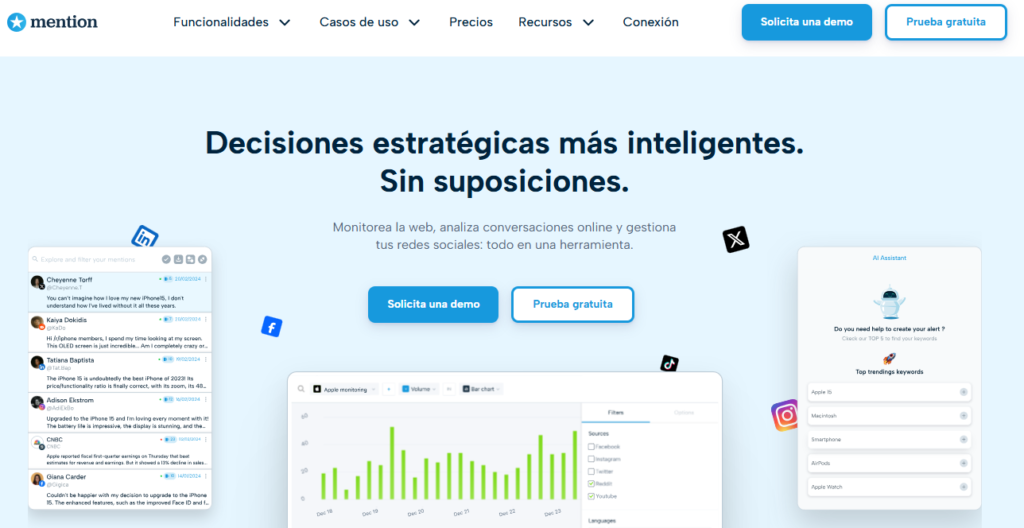
An accessible platform for small and medium-sized companies. Mention allows you to set up real-time alerts to receive notifications whenever a brand, person or keyword appears in digital media, blogs, forums or social networks.
Its intuitive interface allows basic tracking of mentions, identifying most active sources and getting an idea of the volume of conversation. However, it lacks deep sentiment analysis or reputational comparisons. It is ideal to start monitoring without a large learning curve or high costs.
Brandwatch
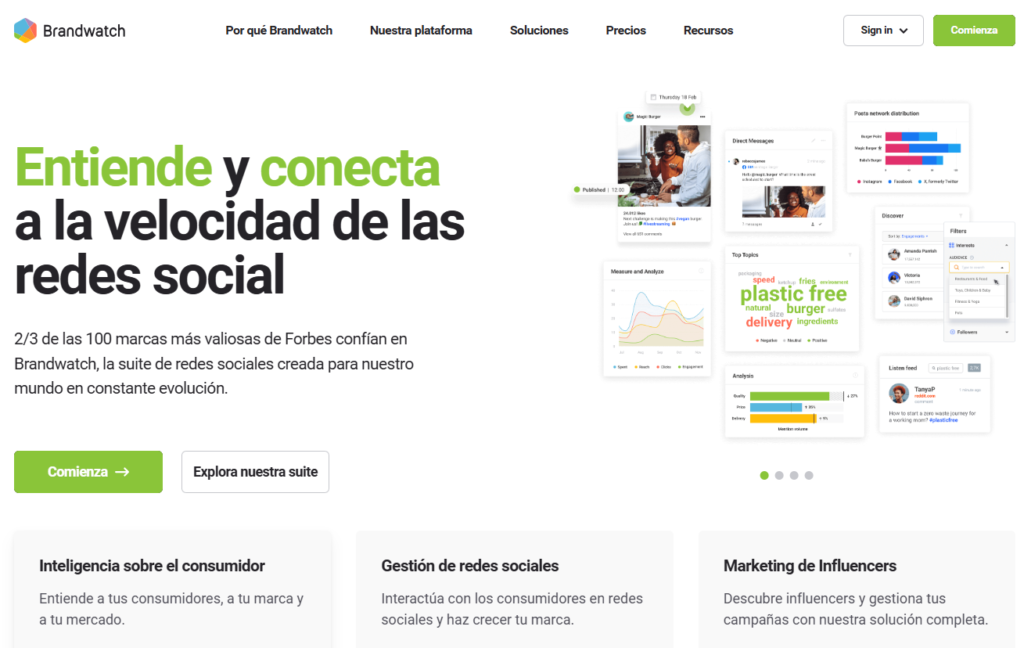
Brandwatch is a robust tool that stands out because of its advanced social network analyticsThe company also provides data visualization in customizable dashboards and natural language processing (NLP).
It allows you to extract insights from millions of online conversations, identify influencers, analyze recurring topics and measure sentiment.
It is a solid option for marketing and communication teams with more sophisticated needs. Its focus is more social media than traditional media, although it can be complemented with other tools.
Talkwalker
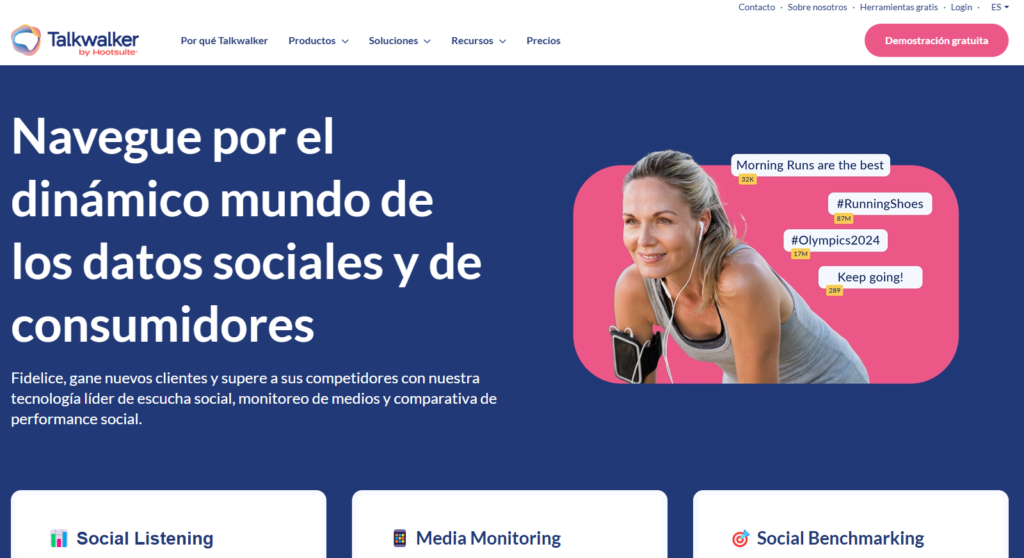
Used by major brands and global agencies, Talkwalker combines traditional and digital media monitoring with strong data visualization.
Offers multichannel monitoring in more than 180 languagesThe integration with multiple platforms and the possibility of creating reports in real time.
Its strength lies in customizable dashboards, the ability to detect trends before they go viral and the evaluation of sentiment. It is especially useful in international campaigns or when a global view of reputation is required.
Meltwater
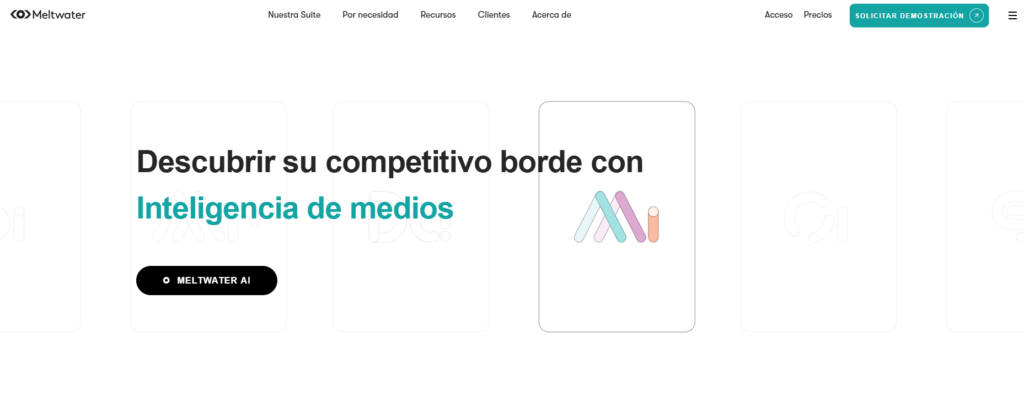
Meltwater offers extensive coverage in traditional media such as print, television, radio and digital media.
Its approach is more oriented to the media intelligence and public relationsThe company offers access to a database of journalists and media outlets to facilitate proactive actions.
It is highly valued by institutional communication departments, large corporations and PR consulting firms that need historical data, customized alerts and basic reputational analysis.
Google Alerts
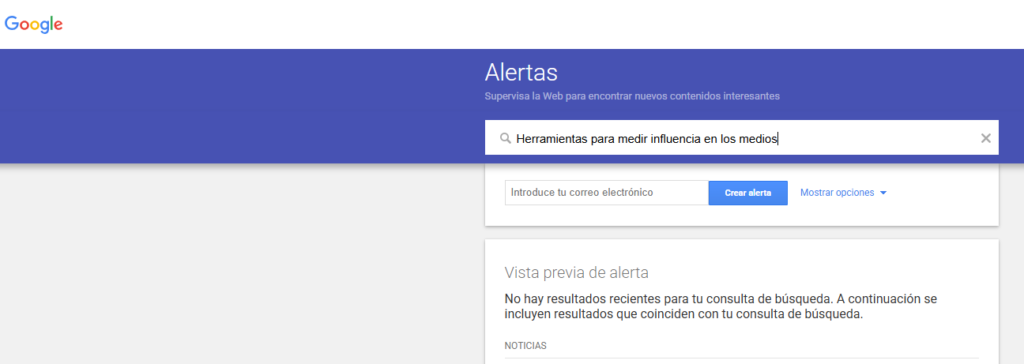
Although basic, Google Alerts is still a useful tool to start tracking brand mentions or specific topics on the web.
It is completely free, easy to set up, and allows you to receive email notifications when a new mention is detected.
That's right, no sentiment analysis, no contextThe use of this solution should be considered as an add-on, not as a complete solution.
ENIGMIA Reputation

ENIGMIA represents the new generation of reputational measurement platforms. It is not limited to counting mentions or grouping headlines: it goes much further.
Our tool, ENIGMIA Reputation, analyzes the 100% of the information published in the media and social networks to determine the real impact of each appearance. Through artificial intelligence, we evaluate:
- The informative tone (positive, negative, neutral)
- The context in which the brand is mentioned
- The potential reach of the publication
- Media credibility
- Alignment with the company's defined reputational values
- Real-time benchmarking against direct competition
All this is done without samplingof the total content published and adapted to the specific reputational strategy of each client. In addition, we generate actionable reports that allow you to know:
- What messages are working
- What reputational risks are emerging
- How brand perception evolves
- Which type of coverage generates more value or damage
ENIGMIA Reputation is the only tool on the market that combines measurement, analysis and strategy in a single platform, providing real value to communication managers, reputation managers, agencies and branding teams.
Discover how ENIGMIA can help you take control of your media reputation, anticipate crises and maximize the value of every public appearance. Request more information here

